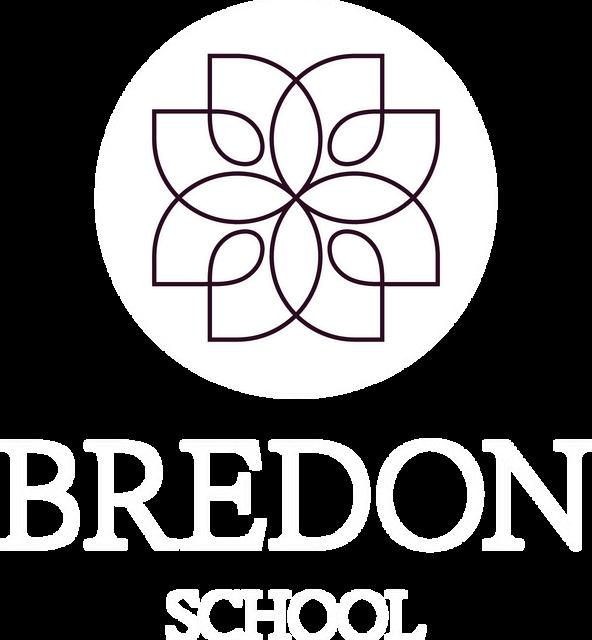

Summary of Inspection Findings
Bredon School
January 2025


Foreword
This January, we welcomed the Independent Schools Inspectorate (ISI) to Bredon and are thrilled to share the final report The inspection, conducted under the new framework introduced in September 2023, highlights leadership, management and governance; quality of education, training and recreation; students’ physical and mental health and wellbeing; social and economic education and contributions; and safeguarding
A team of experienced inspectors current Heads, Deputy Heads, and Senior Leaders engaged with students and staff, observed lessons, reviewed policies, and explored the excellent work produced daily We’re delighted with the report, which showcases Bredon’s many strengths and the outstanding provision we offer. Inspectors confirmed we met all assessed standards a testament to our community’s dedication and commitment.
A standout was the breadth of qualifications students achieve, recognised as a ‘significant strength’; this is a prestigious honour under the new framework The report also celebrates school leadership, ensuring every student feels valued, with wellbeing at the heart of everything we do
Ultimately, it’s our people who make Bredon special Staff, students, parents, and governors create our vibrant, nurturing school. A special thanks to our dedicated staff for driving student success.
I couldn’t be prouder of this well-earned recognition and I encourage you to read the full report by visiting our website
Nick Oldham Headmaster


What’s in this report
This document contains a summary of the results of our latest Independent Schools Inspectorate (ISI) inspection Bredon School’s full ISI report can be found here.
The ISI is tasked with inspecting independent schools’ performance across five key areas. These are as follows:
Leadership and management, and governance 1.
Quality of education, training and recreation 2
Physical and mental health and emotional wellbeing 3.
Social and economic education and contribution to society 4. Safeguarding 5
For Bredon School, the ISI reports that in every category, “all the relevant standards were met.”
Moreover, inspectors noted that:
“The breadth of qualifications that pupils achieve is a significant strength.”
This inclusion of a significant strength is an acknowledgment of exceptional performance, with just 11.6% of independent schools having been commended as such

A
summary of the inspection findings
Leaders closely monitor pupils’ academic and learning needs, ensuring specialist support helps them progress They are committed to achieving the best outcomes, creating a welcoming environment that effectively supports pupils, including those with SEND. Their thorough evaluation of the school’s effectiveness leads to decisive improvements benefiting all pupils
The school offers an ambitious curriculum tailored to pupils’ needs Teachers deliver well-structured lessons, using questioning and observation to assess understanding and adapt teaching accordingly. Pupils can pursue a wide range of qualifications, including vocational courses that develop practical skills and prepare them for further education, apprenticeships, or training.
Teachers maintain a calm and engaging learning atmosphere, offering varied activities and using assessments to track progress. Mistakes are seen as part of learning, and positive behaviour is encouraged Bullying is not tolerated The school fosters respect for diversity, helping pupils appreciate different backgrounds and develop confidence in their identities
Boarding houses provide a well-maintained, supportive environment where pupils build friendships and feel secure Leaders remain vigilant in safeguarding, ensuring staff prioritise pupils’ wellbeing and are alert to potential risks


Section 1: Leadership, management, and governance
Leaders prioritise pupils’ wellbeing by ensuring policies comply with legislation and are well understood by staff They foster a culture where pupils confidently discuss their learning needs and receive appropriate support Strong communication between leaders, tutors, and boarding staff ensures pupils’ needs are met in a supportive environment
The school maintains strong relationships with parents, providing essential information and regular progress updates Leaders work closely with local authorities to support funded pupils with Education, Health and Care (EHC) plans Complaints are handled promptly, with careful consideration of individual pupils' needs.
Effective self-evaluation and improvement plans drive positive change. Initiatives such as the ‘Bredon lesson’ and ‘Bredon levels of assessment’ enhance teaching consistency Senior staff conduct learning walks, and subject leaders monitor development plans and examination results Staff training remains a priority, particularly for supporting pupils with SEND.
Boarding staff receive appropriate training, and houses provide a safe, comfortable environment. Leaders conduct thorough risk assessments for activities and residential trips They work with external agencies to support pupils’ wellbeing and ensure compliance with the Equality Act 2010 Governors rigorously oversee standards and hold leaders accountable.
All standards are met













Section 2: Quality of education, training and recreation
Leaders have designed a curriculum that meets pupils’ diverse needs. All study core subjects, with older students choosing from three pathways that offer rich learning opportunities and inspire achievement
A flexible timetable allows Year 9 pupils to explore subjects before selecting a pathway, leading to varied qualifications, including GCSEs and vocational courses. Staff assess pupils' starting points, including SEND and mental health needs, setting individual academic, social, and emotional targets. Lessons are engaging, challenging, and practical, ensuring steady progress
Teachers adapt lessons effectively, using ‘flashback’ activities, strategic questioning, and adaptive technology like pen readers. Displaying pupils’ work builds confidence and creativity
Leaders rigorously assess progress, setting termly targets and providing detailed feedback ‘Pupil passports’ guide tailored support, while specialist teams help bridge learning gaps Pupils learning English as an additional language receive targeted assistance.
Beyond academics, pupils take part in fitness, cricket, the Duke of Edinburgh’s Award, and hands-on farm activities. The Combined Cadet Force builds confidence and leadership through structured drills
All standards are met
Section 3: Pupils’ physical and mental health and emotional wellbeing
Leaders foster an inclusive environment, promoting respect through discussion groups like ‘hidden differences,’ where pupils share experiences of neurodiversity A mental health action group supports wellbeing The PSHE programme covers reasoning skills for younger pupils and peer pressure and sexual health for older ones, while the RSE curriculum meets statutory guidance on puberty, relationships and consent
Health and safety measures are strong, with secure premises, fire safety arrangements and regular checks Firstaid-trained staff and a school nurse ensure medical needs are met Effective supervision and structured staff rotas enhance welfare.
Behaviour management is generally effective, with clear sanctions and antibullying measures. However, low-level disruption and occasional inappropriate comments from older pupils are not always addressed consistently
Boarding houses are well-maintained and supportive A buddy system helps new boarders, and ‘Talk to Me’ boxes provide a way to voice concerns. Leaders monitor emotional wellbeing, ensuring a positive experience. Attendance is closely tracked, with prompt follow-ups on absences.
All standards are met






Section 4: Pupils’ social and economic education and contribution to society
The curriculum offers diverse qualifications and extracurricular activities, enabling pupils to explore their interests and develop skills suited to their future careers Farming community pupils can study agriculture and agricultural engineering, while others take courses in social media, graphic arts, and photography This broad provision ensures strong preparation for employment and modern life.
Teachers integrate ethical discussions and British values into lessons History pupils examine rights and responsibilities, while those in agricultural studies explore land use and its consequences. Mental health awareness is promoted through assemblies and events like Children’s Mental Health Week, reinforcing respect for diversity.
Pupils contribute to their community, raising funds for charities and supporting local initiatives. They develop financial literacy through maths and the ‘Work Ready’ programme, learning budgeting, banking, and business skills through practical activities like selling school produce
Careers guidance is personalised, with work experience opportunities and impartial advice Sixth-formers receive tailored UCAS support, including mock interviews, equipping them for further education and employment
All standards are met



Section 5: Safeguarding
Leaders prioritise safeguarding as a shared responsibility. Policies align with statutory guidance, and the proprietor oversees safeguarding arrangements. Regular training ensures staff understand their duties, remain alert to pupils’ wellbeing, and are equipped to address risks like radicalisation and online threats.
Staff feel confident reporting concerns, which leaders handle effectively, involving external agencies when needed. Pre-employment checks ensure staff suitability, with thorough records maintained. Pupils receive guidance on staying safe, including online, with robust filtering and monitoring in place. The safeguarding team is well known to pupils.
All standards are met
Our Heads of House:






We hope you enjoyed reading our ISI inspection report summary. To read the full version, please visit our website: www.bredonschool.org/about-us/inspections/ Thank you.
